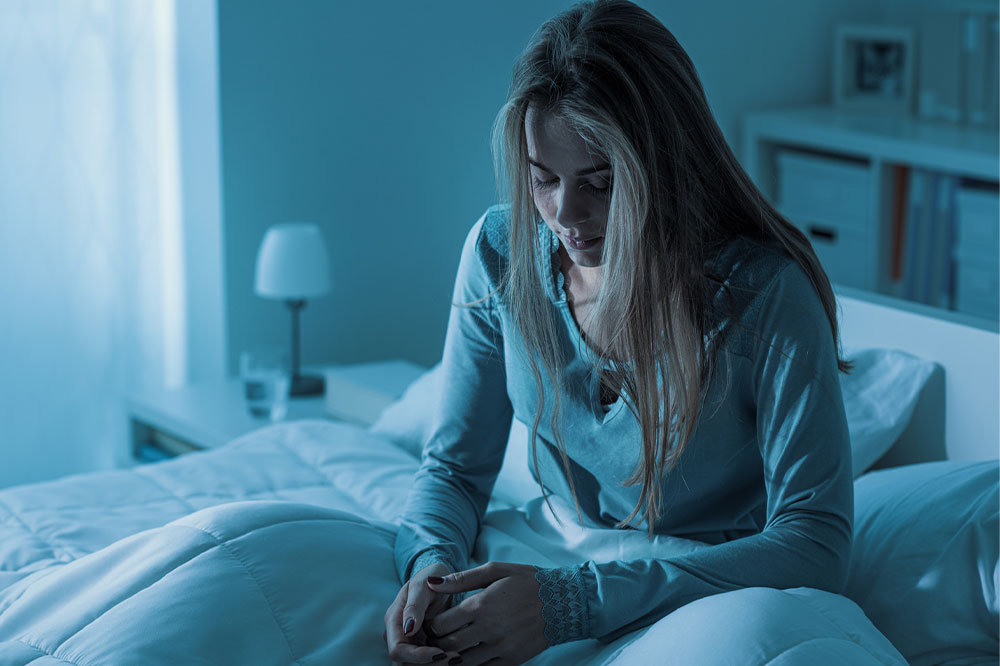
10 warning signs that indicate sleep deprivation
Most adults are recommended between 7-9 hours per night. Constantly sleeping fewer hours may cause sleep deprivation, which can lead to several health complications. The condition may develop due to sleep disorders (insomnia, sleep apnea, narcolepsy, etc.), aging, illnesses such as depression, schizophrenia, chronic pain syndrome, cancer, etc., or due to other factors such as stress or change in schedule. To try and manage sleep deprivation, here are 10 warning signs to note:
Reduced productivity and performance
Chronic sleep deprivation hinders the body’s ability to think, function, or perform to its full potential. Sleep deprivation may also impact one’s ability to read social situations and make good decisions. This can hamper productivity and performance. According to certain studies, nighttime sleep and dreaming promote new learning and memory consolidation and improve creativity. While caffeine can help improve productivity momentarily, sleeping will help soak in information more effectively.
Insatiable appetite
According to a study conducted in 2004, those who sleep for 6 hours or less per night are likely to have reduced levels of the appetite-suppressing hormone leptin. They are also more likely to have increased levels of the hunger-stimulating hormone ghrelin. This development will likely cause more nighttime cravings and increase the risk of lifestyle diseases like diabetes.
Dull skin
The smallest amount of sleep deprivation can affect one’s appearance. Generally, sleep-deprived people are more likely to experience red, puffy eyes, dark undereye circles, and turned-down corners of the mouth. Regular, quality sleep can help reduce their occurrence and improve skin health.
Fatigue
Fatigue could be a result of a stressful day, overworking, or even an illness. However, if one experiences fatigue without any explainable cause, it may be a sign of sleep deprivation. Lack of restful sleep can impact the body’s ability to function and reduce motivation and productivity throughout the day.
Drop in libido
Sleep deprivation can also present itself in the form of lost libido, especially in women. Typically, women take up most of the care work around the home, be it with their children or aging parents. This hikes up their exhaustion levels and can negatively impact their sexual libido. A waning sex drive may also be linked to conditions such as sleep apnea or insomnia and warrants professional attention.
Lowered immunity
Proper sleep is necessary for the body to carry out repair and maintenance functions. As one sleeps, the immune system produces antibodies and cytokines to fight foreign invaders, such as bacteria and viruses. Sleep deprivation, however, hinders this process. Lack of sleep can weaken the body’s immunity against foreign invaders, increasing the likelihood of falling sick, and increasing recovery time.
Mood swings
Lack of sleep can affect the body’s ability to regulate emotions. This can lead to mood swings, instability, over-reactive behavior, and increased irritability. It can also make it difficult to cope with daily situations. Unchecked, chronic sleep deprivation may also lead to impulsive behavior, paranoia, hallucinations, anxiety, and depression.
High blood pressure
Lack of sleep impacts the hormones that balance stress and metabolism in the body. Sleep deprivation can cause significant swings in these hormones, which can cause high blood pressure.
Increased risk of heart disease
In addition to blood pressure levels, lack of sleep may also increase the presence of chemicals that cause inflammation in the body. Together, these factors can increase the risk of heart disease.
Poor balance
Sleep also plays an important role in controlling balance and coordination. Sleep deprivation may result in impaired balance, making one more prone to accidents and injuries.
The best way to prevent sleep deprivation is by getting adequate rest each night. Some ways to get one’s sleep schedule back on track include:
Limiting daytime naps
Avoiding caffeine consumption after noon
Going to bed at the same time each night, and waking up at the same time each morning
Adhering to a sleep schedule even on weekends and holidays
Avoiding using the phone or other electronic devices one hour before bedtime
Trying relaxing activities before bed, such as taking a bath, reading, or meditating
Exercising regularly (but not close to bedtime)
Avoiding heavy meals too close to bedtime
If one experiences persistent sleep problems that impact the quality of their daily life, it may be time to visit the doctor. They can help test for any underlying conditions and help formulate a treatment plan to get one’s sleep schedule back on track.




